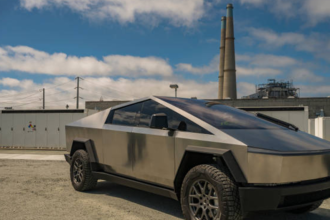Citing what they said to be “slavery-like conditions” for workers, Brazilian authorities have intervened to stop the building of a plant for Chinese electric car (EV) powerhouse BYD. A statement issued by the Public Labour Prosecutor’s Office (MPT) reveals shockingly, more than 160 employees were rescued from facilities in the northern state of Bahia.
Employed by Jinjiang Construction Brazil, a contractor hired for the project, these employees reportedly suffered in living and working conditions. Authorities assert that their passports and pay were withheld, therefore imprisoning them in a condition of forced labour.
What were the workers' living conditions like?
Prosecutors found deplorable conditions at worker quarters in Camaçari. Workers were ordered to share a single bathroom and sleep on beds devoid of mattresses. Such congestion caused employees to wake up early to prepare for the day.
The MPT said, “the conditions discovered in the lodgings revealed an alarming picture of precariousness and degradation.”
Brazilian law defines “slavery-like conditions” as having financial bondage and workplaces violating human dignity. In this instance, the MPT observed that “forced labour” also included withholding wages and disproportionate costs imposed for contract termination.
How Did BYD Address the Allegations?
Electric car leader BYD reacted quickly by cutting ties with Jinjiang Construction Brazil. In a public statement, the company said it had moved the impacted employees to hotels and reaffirmed its dedication to “full compliance with Brazilian legislation.”
BYD said, separating itself from the contractor’s methods, “We conducted a detailed review of the working and living conditions for subcontracted employees and requested improvements on several occasions.”
The factory under question was designed to start operations in March 2025 and was meant to be BYD’s first EV manufacturing facility outside Asia. The company’s decision to stop building emphasizes how serious the accusations are.
How Does Brazil Support BYD's Global Growth?
Short for Build Your Dreams, BYD has been a major player in the worldwide EV scene. In late 2023, the company’s electric vehicle sales exceeded those of Elon Musk’s Tesla, fostering intense industry leadership competition.
Brazil has become BYD’s primary foreign market after it built a plant in São Paulo in 2015. This plant mostly makes chassis for electric buses. Last year, BYD declared its intention to create an EV manufacturing facility worth 3 billion reais ($484.2 million), currently under examination in Brazil.
Why Is Global Backlash Against BYD's Expansion Under Way?
Government subsidies that inspire consumers to switch from gasoline-powered cars to electric or hybrid alternatives have spurred EV sales in China. However, these measures have drawn criticism elsewhere, with some claiming that such support unfairly benefits Chinese producers worldwide.
Major markets, including the United States and the European Union, have responded by taxing Chinese EV imports. Additional trade limitations are expected, particularly under the direction of US President-elect Donald Trump.
For BYD, what is ahead?
Although BYD is still dedicated to increasing its global profile, the present debate in Brazil marks a significant obstacle. Maintaining its reputation and tackling the problems found in Bahia are challenges for the corporation presently.
Notwithstanding these challenges, BYD’s substantial market presence and worldwide aspirations indicate its likely ongoing importance in the EV sector. Still, this episode reminds us of the need for moral behaviour in a world under closer inspection.








